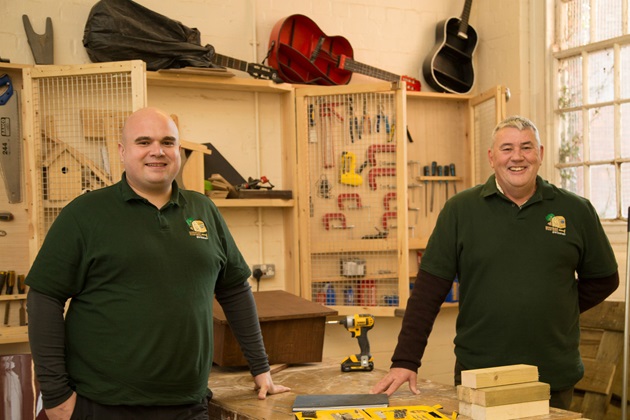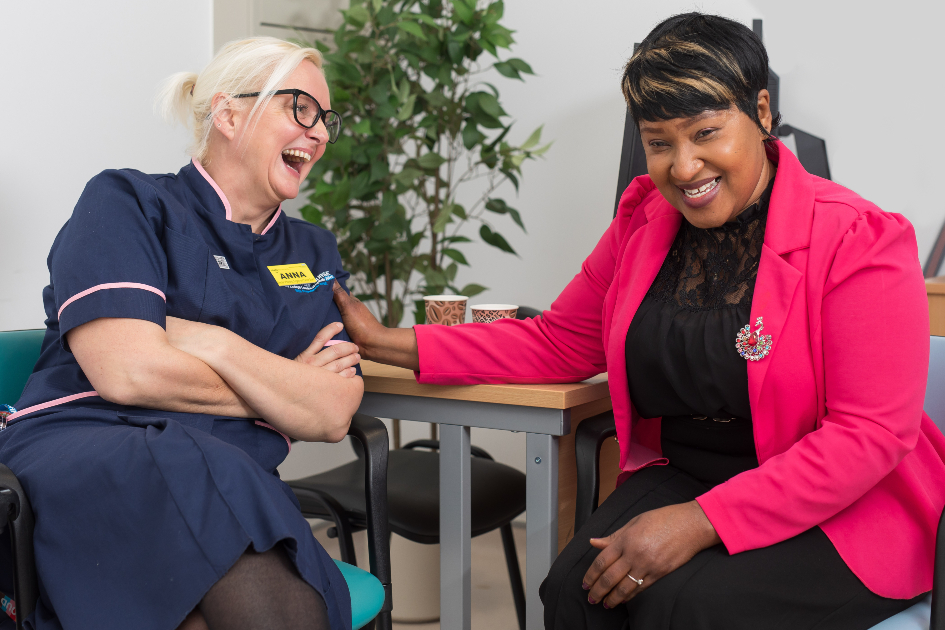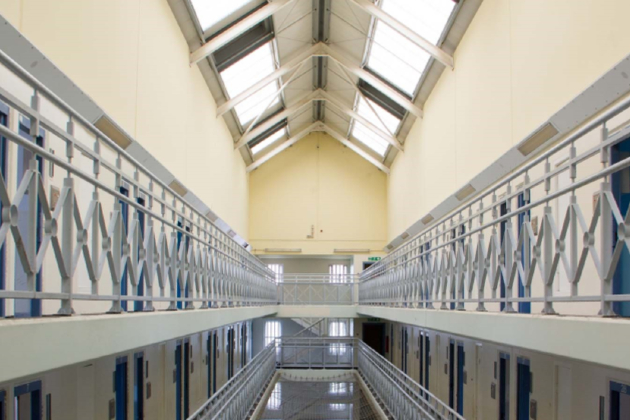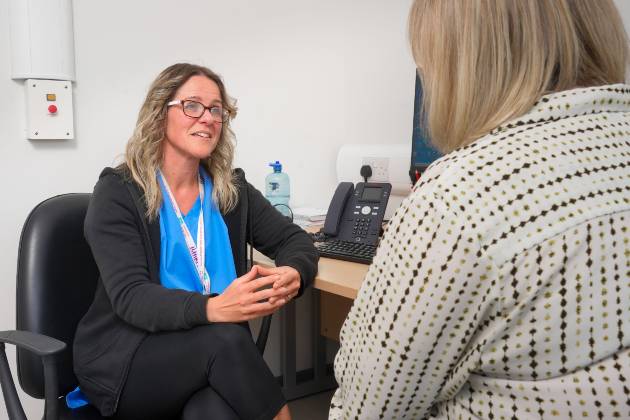People with serious mental illness are developing practical skills in a woodshed thanks to two support workers determined to transform lives.
Walking around the grounds of St Cadoc’s hospital, in Caerleon, a few years ago, Kevin Bressington and Nathan Harris discussed how good it would be to get a workshop set up in one of the disused buildings for the men on the ward they worked on.
They decided they needed to make it happen.
The resulting project, RESTORE@theWoodShed, was set up initially to support men on a rehabilitation ward with serious mental illness and offending histories.
It was designed to help them gain knowledge and experience of working in a workshop, while bringing in money for the ward’s charitable funds.
The woodshed itself was established in a former storeroom, which had been left untouched for years, full of long-forgotten things. There, with the help of a professional carpenter, service users develop skills such as carpentry, bicycle repairs, refurbishing, tiling, plumbing and painting.
This work has been instrumental in helping people through recovery and rehabilitation, while challenging perceptions and empowering patients along the way.
“We wanted to give people chances and get them involved in a meaningful activity, with a practical purpose that boosts self-esteem and helps people mix with others,” Nathan explains.
”Many service users worked when they were younger before their mental health issues got in the way. We want to show them that they can still work.”
'Giving people a chance'
“One participant here was fed up of being given work experience after work experience but never getting a job because of his mental health background.
"Now he comes here as an NHS volunteer, where he knows we cannot pay him, but he is learning new skills and developing contacts and gaining valuable volunteering experience.
"We’re giving people here a chance to use their experiences to educate others and he’s hopeful of getting employment now,” Kevin says.
Determined and undaunted
The scale of the project was huge, and it took months to clear the space. But everything left behind in the storeroom was either recycled or sold, with the money going straight back into the project.
Health and safety was an issue and many risk assessments had to be completed. But Nathan and Kevin built a strong relationship with key personnel who worked in a really positive way with them.
Costs were another big consideration for their ambitious project. Undaunted, they reviewed what they could realistically do, applied for charitable funds and put the call out for tool donations.
Their perseverance paid off and in July last year the woodshed officially opened, initially for one day a week.
Now, with the support of a third sector company called Growing Space, who fund a carpenter one day a week to help pass on skills to service users, they’re open three days a week with participants coming along from inpatient and outpatient services.
What goes on in the woodshed?
”Instead of old furniture going to the tip, we bring it here and upcycle it. Shabby chic is all the rage so we work on a lot of those kinds of projects,” says Kevin.
“We also build some items from scratch and we’ve got big order lists for bird boxes, bird tables, planters and bat boxes. We built 200 of those before Christmas.”
The project now runs as a social enterprise, with service users involved in almost every aspect of the day-to-day work, including the banking and marketing of what goes on.
Profits are put straight back into the project, funding new tools and materials where needed.
However, the benefits of the work that goes on in the woodshed stretch way beyond its walls. Of course there are the many advantages that come from recycling, but there’s a practical side to the work there too.
The benefits of the work that goes on in the woodshed stretch way beyond its walls
Some service users make furniture specifically for them to take to their new homes when they’re discharged from inpatient services.
Both Kevin and Nathan can see how the project participants have developed in confidence too.
Jason (who tells his story below) now acts as an ambassador for the project and takes pride in showing visitors around the shed, pointing out the workbenches in use, the tool storage area, the painting area and, of course, the place to make a cuppa. He’s already committed to returning to the project as a volunteer after he’s been discharged.
Big ambitions
What started out as a ward project has evolved in to something much bigger. It is now accessible by anyone being treated by the trust's mental health services.
This month, for the first time, RESTORE will offer sessions specifically for older adults living with dementia, and for people who have had a stroke.
Going forward Kevin and Nathan will work even closer with Growing Space, opening the woodshed five days a week and extending to outdoor working too.
They’re now in the process of setting up a garden immediately outside the woodshed – growing veg in poly tunnels and building decking for a smoking area.
Award winners
Nathan and Kevin's achievements were recognised when they won the support worker category of the RCN in Wales Nurse of the Year Awards.
Kevin says: “It’s nice to be recognised, but it’s really a team award. If staff hadn’t supported us we wouldn’t have got anywhere.”
Making savings
“Someone’s grandfather had a stairlift fitted at home so he donated his bannister to us.
"Just a week later, we were advised we needed to add a stair rail to steps in the garden area.
"By reusing what we were given, we’ve saved £500,” says Nathan.
RCN Professional Lead for Mental Health Catherine Gamble says:
"People with severe mental illness and offending histories rarely get any limelight and are often in the shadows when innovative service ideas are considered.
"This project illustrates the importance of co-production, listening to patients and making use of resources that we have around us.
Sometimes all it takes is a bit of far-sighted thinking, up-cycling and tenacity. Let’s all consider ways to replicate and restore."
‘I’m working on furniture for my flat’
“I’ve been involved in the woodshed since the start and helped open it, chatting about my experiences for a long time with Neville Southall [former Wales international footballer], who came along to officially open the shed.
“I enjoy using drills and the electric saw and I’ve worked on bird boxes, bird feeders and bug hotels. We also restore furniture. We take donations which we rub down, paint up and ready to sell.
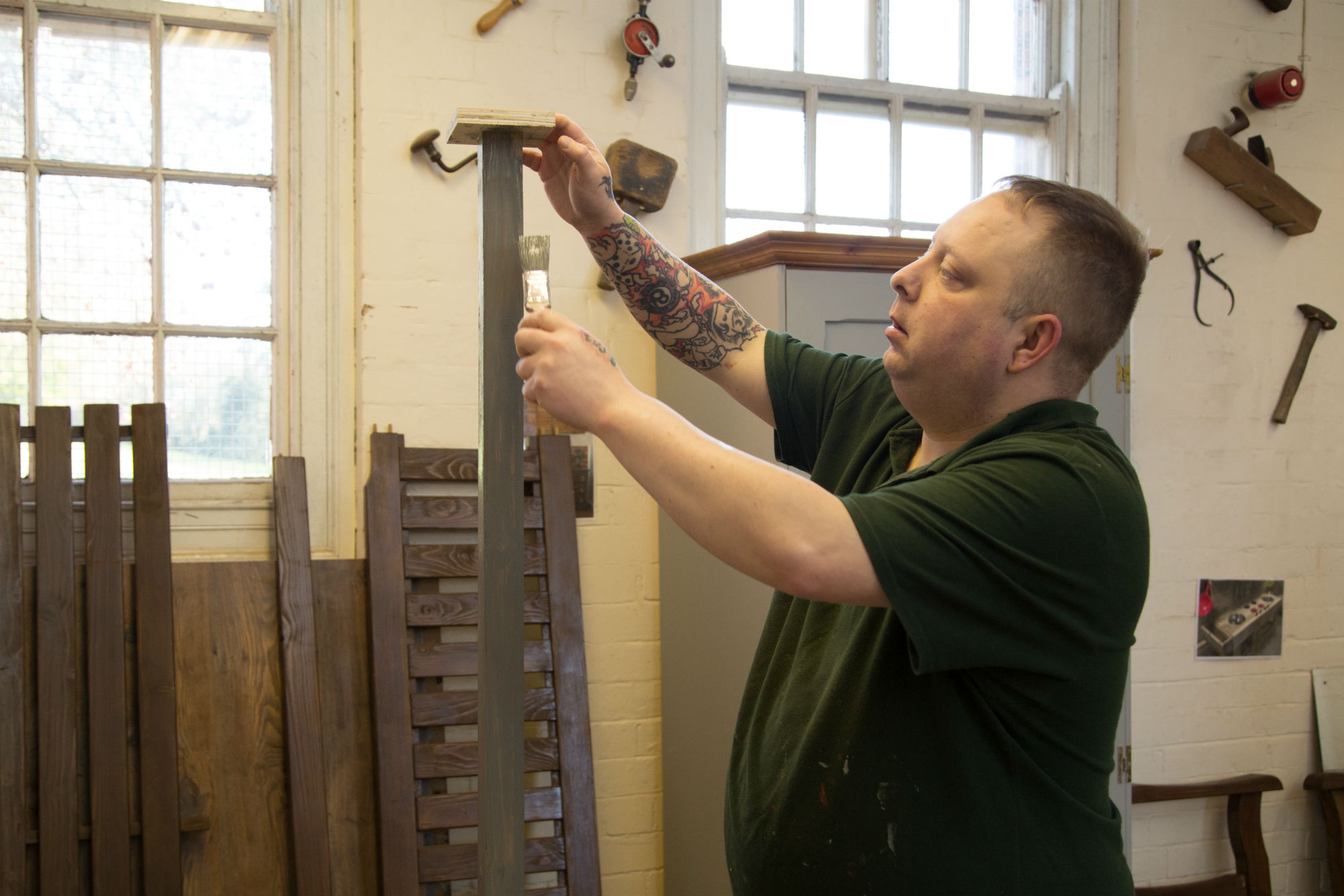
"But we don’t sell everything - I’m now working on furniture for my flat which I will move into in the next few weeks. I’ve built a wardrobe which will come in useful.
"Working here has been great for me socially and I now act as the official guide, showing visitors what we do here. I’ve also completed a peer-mentoring course so I can help others coming here feel comfortable, although it is a very friendly place.”
Jason, project participant
Further information
- RESTORE stands for Rehabilitation, Education, Skills, Training and Ongoing Recovery for Everyone.
- Nathan Harris and Kevin Bressington work at Aneurin Bevan University Health Board. Got an order? Email nathan.harris@wales.nhs.uk
- Find out more about the RCN in Wales Nurse of the Year awards.


